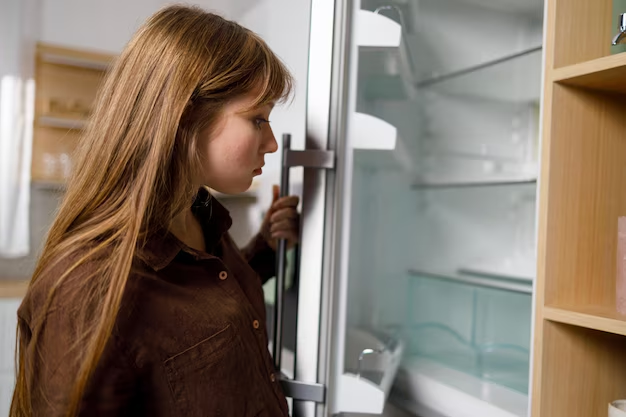How Long Can You Keep Bottled Water in the Fridge? The Essential Guide to Food Storage and Shelf Life
When it comes to food storage, knowing the shelf life of bottled water in your refrigerator is crucial for both your health and convenience. Have you ever wondered how long a bottle of water can sit in your fridge before it becomes less safe or palatable? In this comprehensive guide, we’ll explore the longevity of bottled water in refrigeration, cover related topics, and offer practical tips to ensure you always have fresh water on hand.
🥤 The Basics of Bottled Water Longevity
The Shelf Life of Unopened Bottled Water
Bottled water generally comes with a "best by" date, but what does this mean? Typically, unopened bottled water can last indefinitely if stored properly. However, manufacturers usually recommend consuming it within 1 to 2 years for optimal taste and quality. This recommendation is largely due to the potential for plastic leaching and the degradation of water quality over time.
Factors Affecting Bottled Water Longevity
- Type of Bottle: Plastic bottles may degrade more quickly over time compared to glass bottles. Be mindful of this, especially if you're storing water long-term.
- Storage Conditions: Light, heat, and exposure to air can affect bottled water. Always store in a cool, dark place to prolong shelf life.
- Bottle Seals: Ensure the seal is intact. A broken seal can lead to contamination and reduced freshness.
🧊 Storing Bottled Water in the Refrigerator
How Refrigeration Affects Bottled Water
Refrigerating bottled water can help maintain its taste and safety. While water doesn’t spoil like perishable foods, refrigeration can help protect it from temperature fluctuations that might affect its clarity and taste.
Optimal Storage Practices
- Keep It Sealed: Always store bottles tightly sealed to prevent contamination.
- Avoid Light: Even in the refrigerator, light exposure can degrade the quality of the water over time.
- Consistency is Key: Keep your fridge at a consistent, cool temperature, ideally around 35-38°F (1.7-3.3°C).
How Long to Keep it Refrigerated
For maximum freshness, try to consume refrigerated bottled water within two weeks once opened. Unopened bottles stored properly can last significantly longer without any concerns.
🔄 Transitioning Into Related Topics
Understanding Plastic Leaching
Plastic leaching is a potential concern with prolonged storage. Over time, chemicals from plastic bottles (such as BPA) can seep into the water, especially when exposed to heat or sunlight. Opting for BPA-free bottles can mitigate some of these risks.
The Impact of Taste Over Time
While water doesn’t necessarily spoil, its taste can be adversely affected by poor storage practices. A musty or "off" taste can indicate exposure to foreign elements, and it's best to discard water that tastes bad.
Tips for Reusable Bottles
Eco-friendly Option: Using reusable bottles is better for the environment. Keep them clean and store appropriately to ensure your water remains fresh.
🔑 Key Takeaways for Bottled Water Storage
Here’s a quick summary of best practices for storing bottled water in the refrigerator to maintain its taste and safety:
| 🔑 Tips | 📋 Actions |
|---|---|
| 🕐 Check Expiry Dates | Use within 1-2 years for optimal taste. |
| 🧊 Refrigerate Properly | Keep sealed and store in a dark, cool place. |
| 🚫 Avoid Heat and Sunlight | Prevent leaching by keeping bottles out of heat. |
| 🔄 Rotate Stock | Use older bottles first to maintain freshness. |
| ♻️ Consider Reusables | Use BPA-free, reusable bottles for better safety. |
🚱 When to Dispose of Bottled Water
Signs Your Bottled Water Should Be Tossed
- Off Odors or Tastes: A sign of contamination or leaching.
- Cloudiness: Could imply bacterial growth or foreign particles.
- Leaky or Compromised Seal: Possible exposure to air and contaminants.
Understanding Shelf Life Exception Scenarios
In some situations, even with careful storage, water quality might degrade. This is most common with improperly sealed bottles or accidental exposure to light and heat.
📚 Further Exploration
Water and Plastic Interaction
For readers interested in the science behind water storage, exploring the interaction between water molecules and different types of plastics can be enlightening. This knowledge can guide your purchasing decisions, especially when choosing between plastic and glass bottles.
Environmental Considerations
The environmental impact of bottled water is another topic worthy of exploration. Opting for sustainable practices not only benefits your health but also the planet.
Managing Emergency Water Supplies
Understanding how long bottled water lasts can be critical for emergency preparedness. Maintaining a safe and effective water supply is vital for both peace of mind and safety.
Tying It All Together
The longevity of bottled water in your refrigerator is influenced by storage conditions, bottle type, and even how you manage your supply. By following best practices, you can ensure your water remains fresh and safe to drink. Transitioning to reusable bottles and understanding the broader implications of your water choices can further enhance your food storage habits.
Remember, the goal is not only to keep your water fresh but also to do so in a way that is mindful of both personal health and environmental responsibility. With this knowledge in hand, you're well-equipped to make informed decisions about your bottled water storage.

